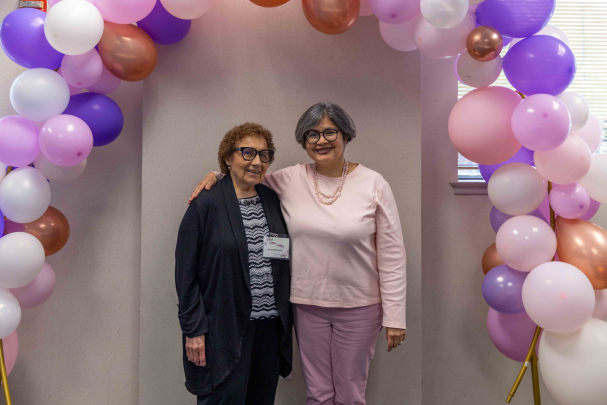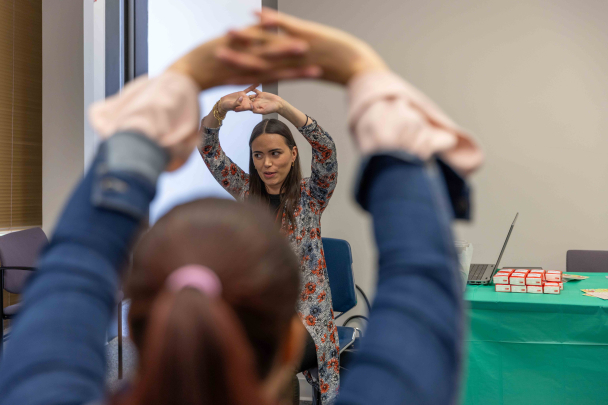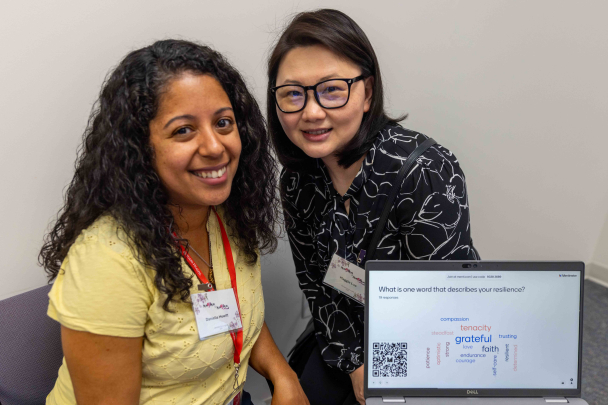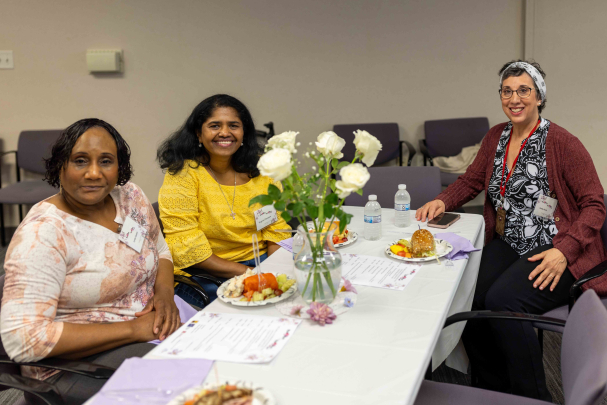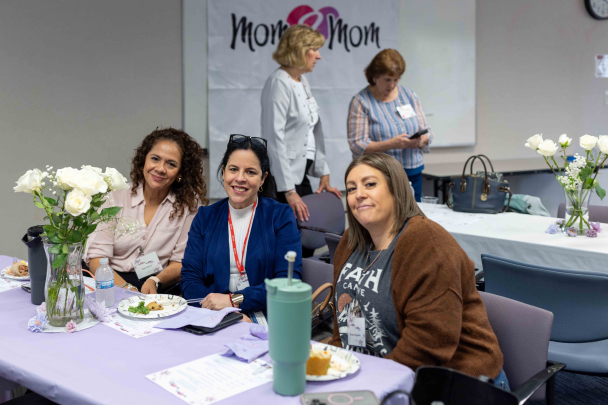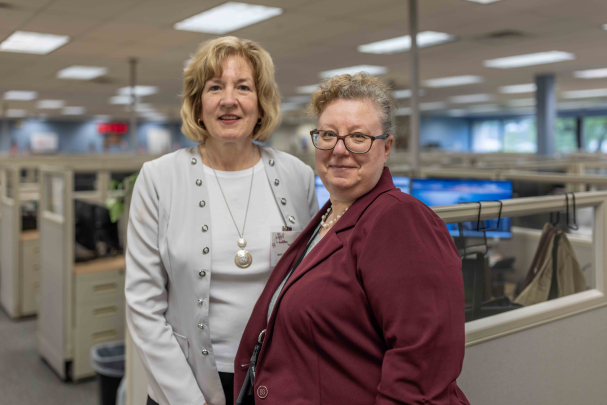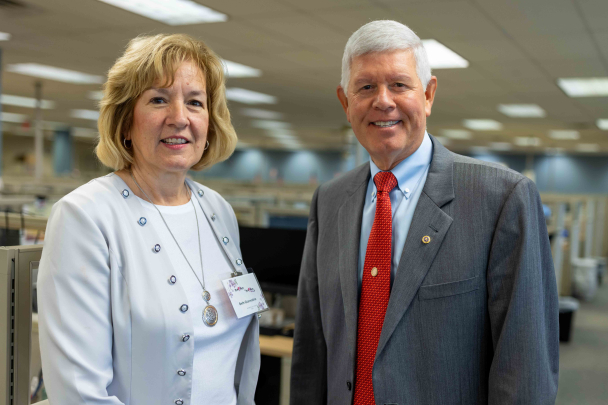For Caregivers of Special Needs Children, Rutgers’
Mom2Mom Helpline Provides Critical Peer Support
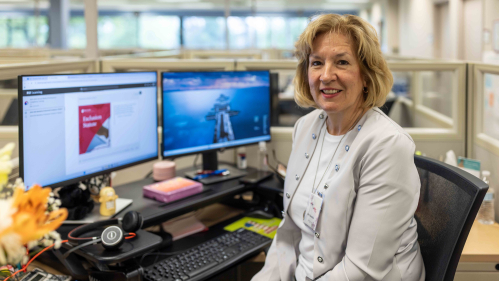
When Beth Giannobile needed guidance in raising her special needs child, she reached out to the Mom2Mom Peer Support Helpline.
Little did she know her connection with the program – which, along with Mom2Mom Adult, is operated 24/7 by Rutgers University Behavioral Healthcare and the New Jersey Department of Human Services – would continue for years into the future.
Calling Mom2Mom left me feeling less isolated. I didn’t choose to care for a child with special needs, though I was a willing caregiver. Being able to speak with someone made the burden a bit lighter.
Beth Giannobile
Mom2Mom Peer Support Specialist
The Union County resident eventually switched roles and began serving as a Mom2Mom peer support specialist. Today, she manages a caseload of about 60 clients who she speaks with regularly.
“Calling Mom2Mom left me feeling less isolated,” Giannobile said. “I didn’t choose to care for a child with special needs, though I was a willing caregiver. Being able to speak with someone made the burden a bit lighter.”
Available to New Jersey residents caring for a special needs child, Mom2Mom (accessible by calling 877.914-6662 – or, for Mom2Mom Adult, 833-652-3858) is staffed by individuals who have themselves cared for someone with special needs, have earned at least a bachelor’s degree, and have received mental health-focused training. Established in 2010, Mom2Mom has an office in Piscataway, N.J. and a staff of nine peer support specialists (information on becoming a Mom2Mom peer is available here).
In an uncertain time related to supports for those with special needs, Mom2Mom is intended to provide insight, direction and someone to speak with whose experiences have been similar.
“When someone reaches out to us, they’ll get to speak with a person who has been on a similar journey,” Giannobile said. “We know their hearts may be broken – they may just have received a crushing diagnosis – so our initial emphasis is on being uplifting and supportive. We’ll remind them that they matter, that they’re important.”
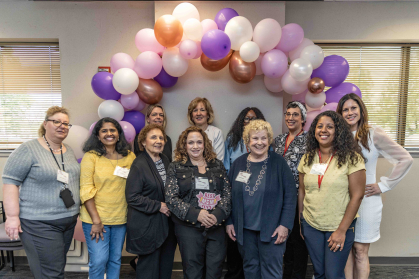
Based on her own personal experience of being a caller before becoming a peer, Giannobile is well aware that making the first call to Mom2Mom is a leap of faith.
“It takes a lot of courage – so good for them,” she said. “A mom is a child’s first caseworker, and they know when it’s time to seek help. We’ll laugh and we’ll cry with them – it starts off with emotional support.”
Callers to Mom2Mom – there are about 19,000 contacts each year – come from a wide range of backgrounds and circumstances. Some are women, some are men; there are parents, grandparents, and others.
“These are people facing a roller coaster of emotions,” said Antoinette Evans, a peer support specialist. “The initial contact is critical, and you never know what will prompt someone to seek help. One of the biggest triggers is a child reaching adolescence. Naturally, that’s a difficult time for all children.”
These are people facing a roller coaster of emotions. The initial contact is critical, and you never know what will prompt someone to seek help. One of the biggest triggers is a child reaching adolescence. Naturally, that’s a difficult time for all children.
Antoinette Evans
Peer Support Specialist
Once a caller has made an initial connection and experienced what Giannobile refers to as “a soft landing,” the next step is a Mom2Mom supervisor assessing the initial input provided. Then, if the caller has indicated a desire for a follow-up call, they’ll be matched with a peer who would seem to be an appropriate fit based on past experiences.
“We may not get a perfect fit – we’ll be looking for at least a degree of shared challenges or experiences,” said Matthew Buragina, program manager. “That can be sufficient for beginning to establish a relationship. And ultimately, that’s what we want, so the caller will feel comfortable engaging with us regularly to discuss how things are going in their life and the life of the person they care for.”
In addition to having similar life journeys, some of the peers have additional competencies that are well suited to select callers. One peer specializes in helping callers address residency-related problems. Another is fluent in Spanish. The Mom2Mom peers also have access to an interpretation line when a language barrier arises.
When someone calls the helpline, it’s pretty much certain that a lot is going on in their life. Fortunately, our peers are extremely resourceful. They embrace the role of finding effective solutions.
Irena Guberman
Director, Call Center Operations for Mom2Mom
“It’s very helpful to have things in common with callers,” Giannobile said. “It makes establishing a connection easier. From there, you can work together on navigating challenges and setting goals.”
Along with one-to-one calls, Mom2Mom also hosts support groups. Participants in these Zoom format sessions fall into one of two categories – caregivers either to younger children or to an individual age 21 or older. The organization also periodically participates in community events.
“When someone calls the helpline, it’s pretty much certain that a lot is going on in their life,” said Irena Guberman, director of Call Center Operations for Mom2Mom. “They may be struggling with governmental systems, with housing concerns, or with a hands-on care issue. They may be feeling isolated and in need of ways to meet people. Fortunately, our peers are extremely resourceful. They embrace the role of finding effective solutions.”
